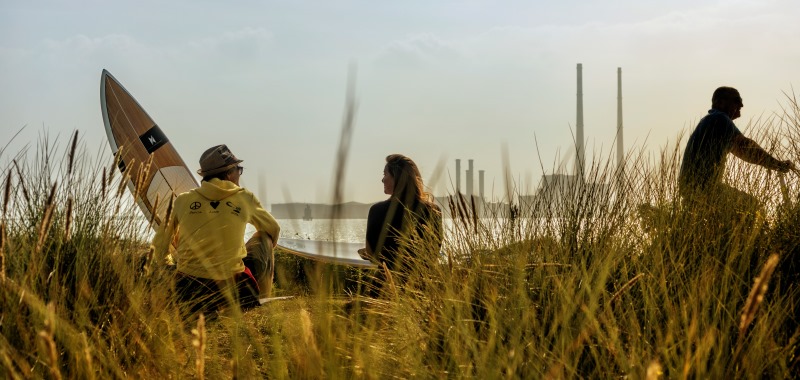
The Socio-Economic Marine Research Unit was initially set up in 2008 through funding from the Beaufort Marine Research Award, which is carried out under the Sea Change Strategy and the Strategy for Science Technology and Innovation (2006-2013), with the support of the Marine Institute, funded under the Marine Research Sub-Programme of the National Development Plan 2007–2013. The research of the unit is interdisciplinary in nature with a focus on marine socio-economics and coastal rural development issues.
The research of SEMRU is very wide ranging. The main research of the unit is on the economic importance of coastal and off-shore marine environments. This involves examining the economic utility of the marine environment (e.g. transportation, recreation) and ecological value (e.g. fisheries, aquaculture) derived from the productivity of associated ecosystems, marine input-output analysis and marine sectoral productivity analysis. Other research topics of interest include marine spatial planning and marine ecosystem service valuation.
SEMRU’s research is conducted in partnership with other national agencies such as the Marine Institute, Teagasc, EPA, the Irish Marine Federation, Government Departments etc.; and international organisations such as the Marine Alliance for Science Technology Scotland, The Centre for the Blue Economy, California and Ifremer, France.
Further information on SEMRU activities can be found here.
Research Focus
- Economic valuation of maritime transport demand in Ireland and other EU countries (i.e. EU transport policy implementation and direct and indirect impact).
- Fisheries economics (i.e. modelling the impact of the Common Fisheries on the fishing industry in Ireland, and in particular its impact on coastal communities and their sustainability).
- Economic evaluation of the share of the marine economy in Ireland to the general economy. Carried out by producing biennial reports on Ireland’s Ocean Economy, involving extensive data collection from national sources (CSO, state agencies, etc.) and a large company survey, involving 300+ companies, collecting their financial data.
- The Bio-Economy Input-Output Model: Development and Applications. It is desirable to understand the interactions between the agriculture and marine sectors and the wider economy and to assess the potential impact of the outcomes of expansion strategies. This research allows the linkages between the bio-economy sectors and the wider economy to be analysed.
- Valuation of ecological resources (i.e. marine ecosystem services, coastal fisheries, outdoor recreation).
- Natural resource management in EU and CEE countries (e.g. environmental stewardship, protected areas, biological diversity, common pool resources).
- Evaluation of Natural Resource Management (NRM) incentives (e.g. marine-environment schemes, rural development policies, direct and indirect incentives).
- Institutional Economics (i.e. common pool resources, environmental partnerships, community-based management of marine recreation resources and tourism).
Related Research Projects
- Modelling Ireland's Maritime Transport Industry (MIMTI)
- Challenges and Opportunities for Ireland’s Major Ocean Economy Industries
- MOSES: Maritime, Ocean Sector and Ecosystem Sustainability
- ALICE - Improving the management of Atlantic Landscapes: accounting for bIodiversity and ecosystem services
- ATLAS: A Trans-AtLantic Assessment and deep-water ecosystem-based Spatial management plan for Europe
- SEAFUEL - Sustainable integration of renewable fuels in local transportation
- MERCES: Marine Ecosystem Restoration in changing European Seas
- Valuing and understanding the dynamics of Ireland’s Ocean Economy
- Spatial Adjustment to Climate Impacts and Economic Development
- Aqua Accept
- Valuing Agricultural Catchment Ecosystem Services (VACES)
- MARNET
- VIBES: Valuing the significant ecosystem services provided by Irish coastal, marine and estuarine habitats
- SOCIOEC
- Using discrete choice method to calculate generic values for water
- Usage of Irish Seas and Coastal Ecosystems for Tourism Development (UISCE Tourism)
- Changing Ocean Ireland: Forecasting Biodiversity and Ecosystem Response. (CÓIR)
- Strategic Partnership Agreement in Marine Socio-Economics between Marine Institute and NUI Galway

